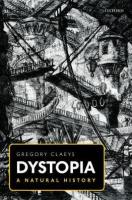Description
The first monograph devoted to the concept of dystopia: redefining the central concepts and chronology of the genre, and offering a theoretical overview and prehistory of the concept; an account of twentieth-century totalitarian regimes as dystopias; and a brief history of the literary dystopia from the early nineteenth century to the present.
Last updated on
Product Details
- Oxford University Press, Brand
- Jul 3, 2018 Pub Date:
- 9780198820475 ISBN-13:
- 019882047X ISBN-10:
- 576 Pages
- English Language
- 9.1 in * 6 in * 1.3 in Dimensions:
- 2 lb Weight:




